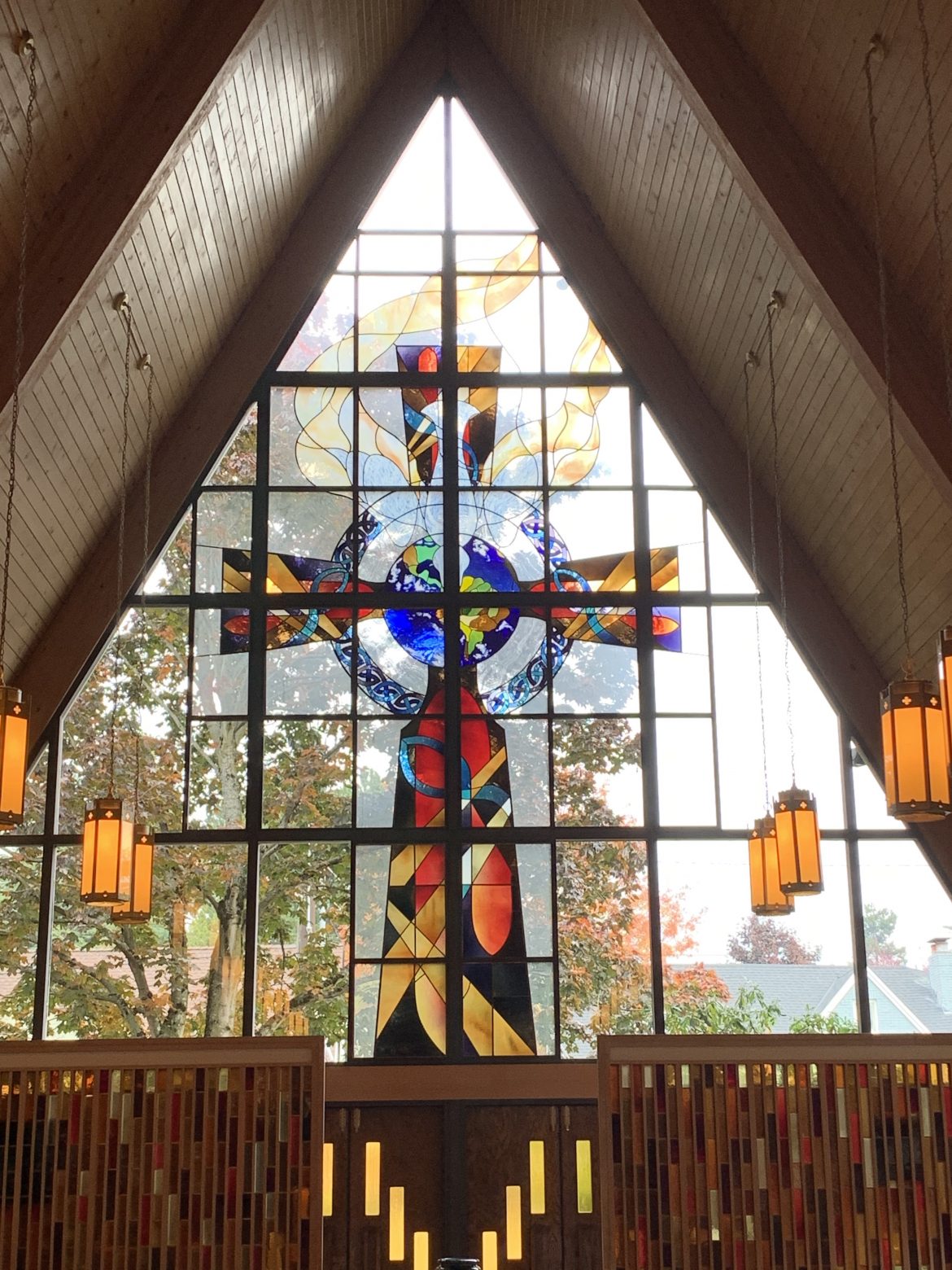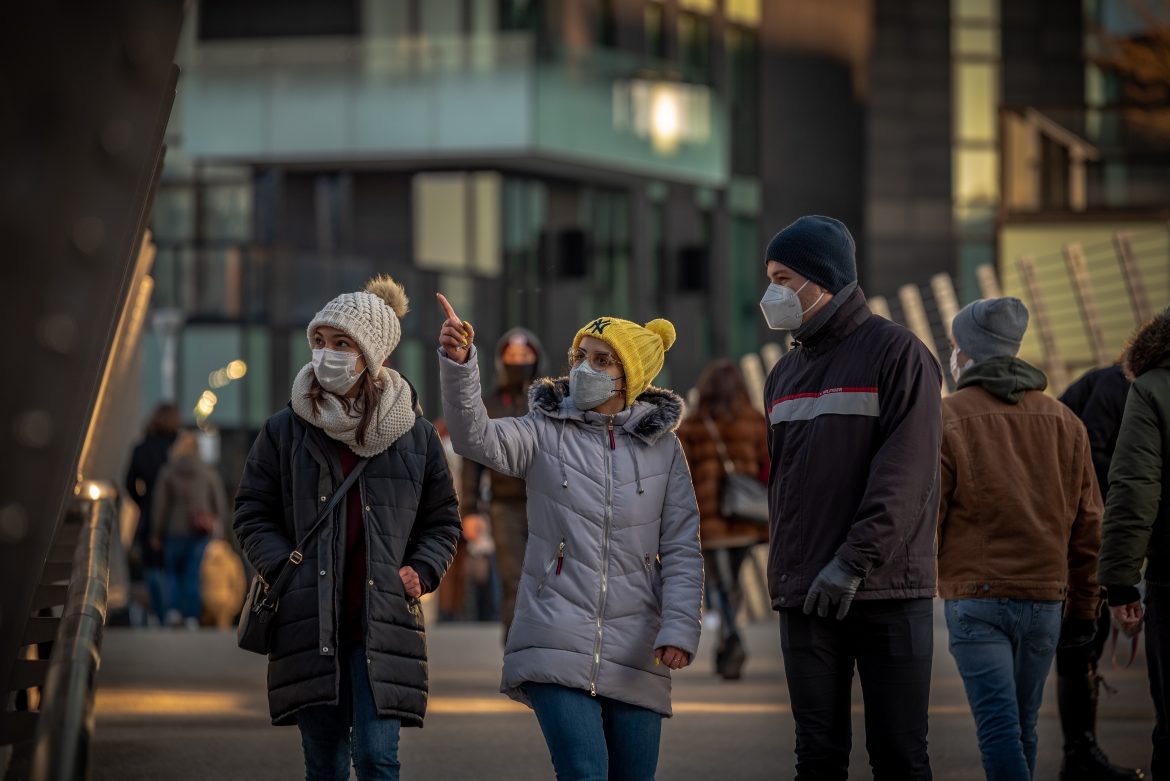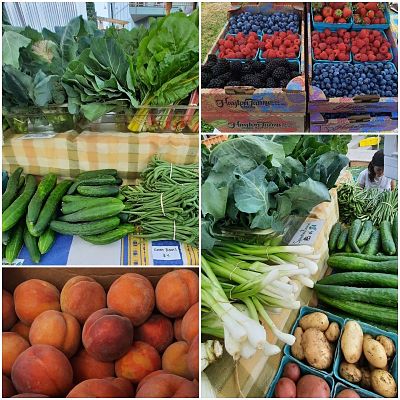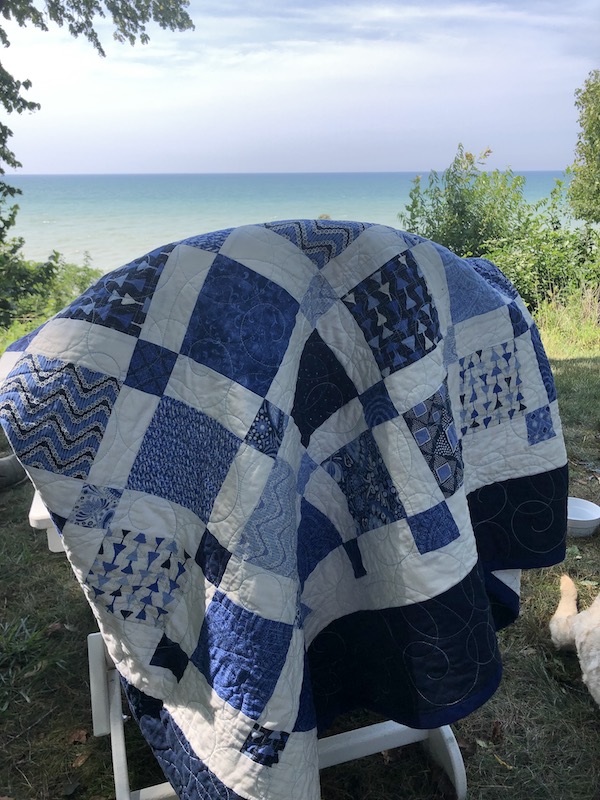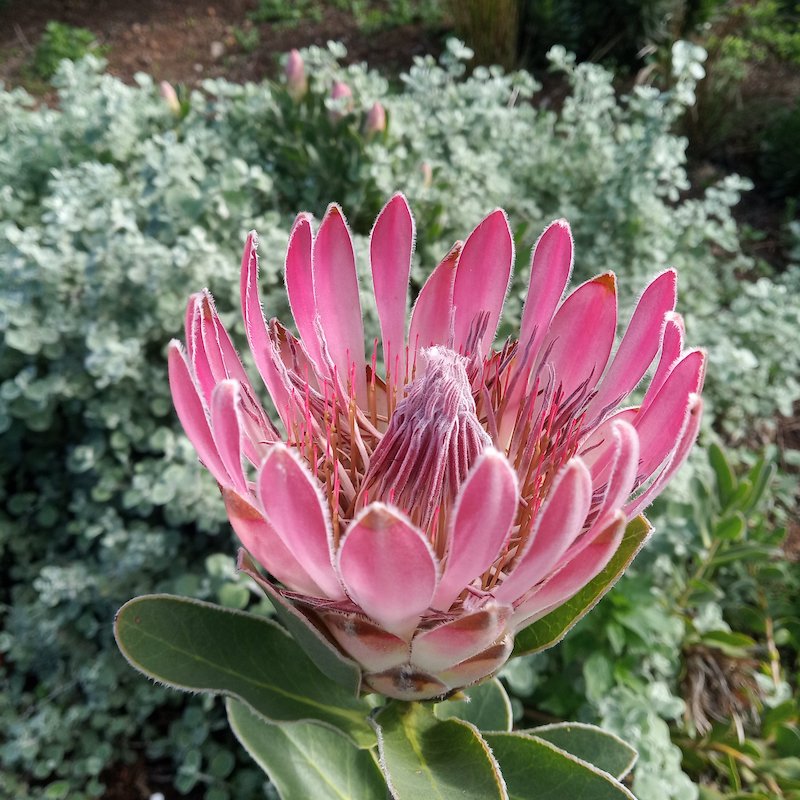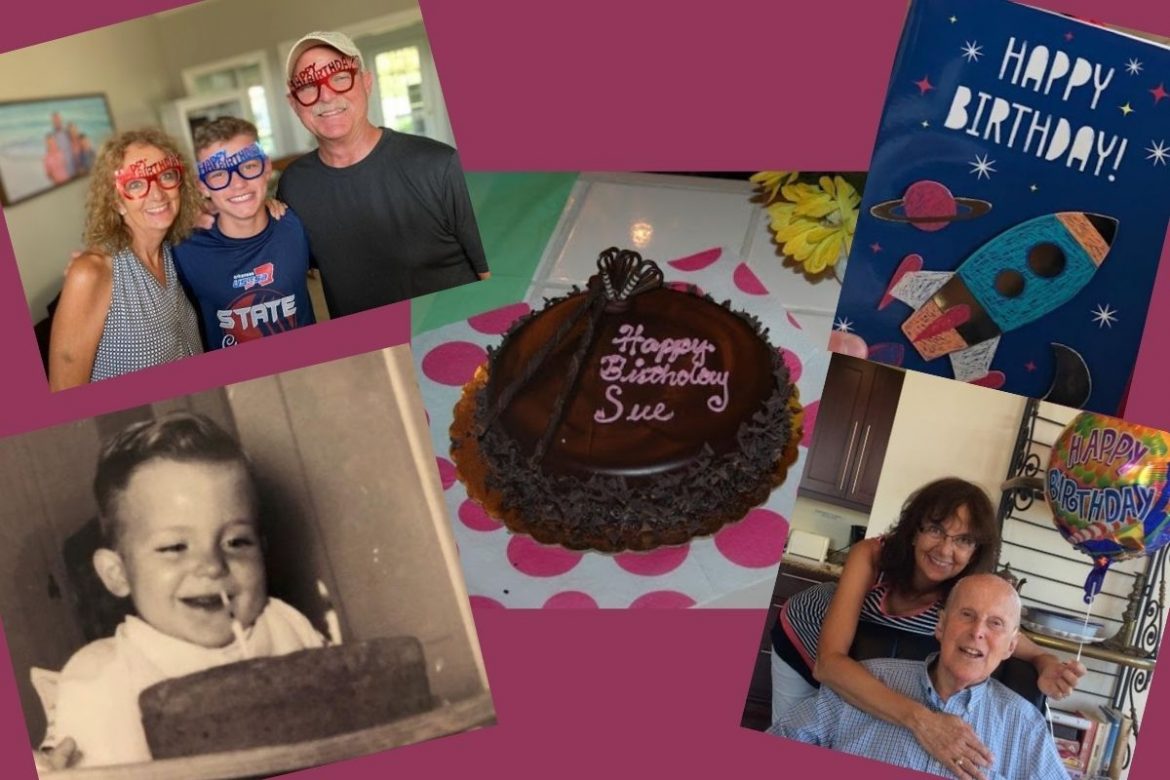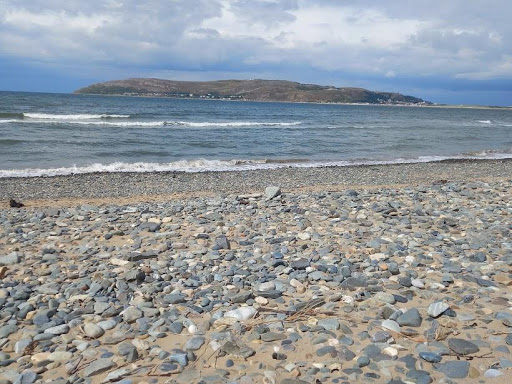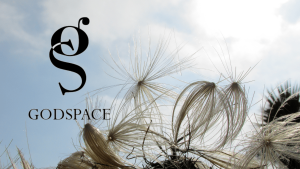Here is this week’s beautiful contemplative service in the style of Taize from St Andrews Episcopal church in Seattle.
A contemplative service with music in the spirit of Taize. Carrie Grace Littauer, prayer leader, with music by Kester Limner and Andy Myers.
Permission to podcast/stream the music in this service obtained from One License with license #A-710-756 with additional notes below:
“Tis a Gift to Be Simple (a Shaker folk song)” – traditional words and music from the American Shaker tradition, public domain.
“The Kingdom of God,” “Your Word, O Lord, is a Light (C’est toi ma lampe),” and “Magnificat” are songs from the ecumenical Taize community in France. Copyright and all rights reserved by GIA/Les Presses de Taizé.
“Kyrie” – words and music composed by Kester Limner. Shared under the Creative Commons License, Attribution (CC-BY).
Thank you for praying with us!
www.saintandrewsseattle.org
by Tom Sine,
Louisiana Experiencing “Overflowing” Hospitals!
In the state of Louisiana, they report,
“Hospitals are overflowing with more COVID-19 patients than ever before. Even children’s hospitals have packed intensive care units. And the Delta variant has alarmed doctors, who described seeing patients in their 20s and 30s rapidly declining and dying. “
‘These are the darkest days of our pandemic,’ said Catherine O’Neal, the chief medical officer at Our Lady of the Lake Regional Medical Center in Baton Rouge.
The Delta Variant has unleashed a rush of diagnoses across the United States, but Louisiana has emerged as a troublesome hot spot, with the highest per capita cases in the country and a beleaguered health care system straining to keep up…
Vaccinations rates are increasing in many states, as employers and universities have started requiring the shots to return to work and class. In the Southeast, where the vaccinations have lagged behind the national rate, those upticks have come in states like Mississippi and Florida just as reported cases began spiking.
In an effort to help temper the spread of the virus in Louisiana while pushing for more vaccinations, Governor Edwards reinstated a statewide mask mandate that went into effect on Wednesday, requiring anyone 5 or older to cover their face indoors.
But the governor’s orders have produced fierce resistance since the onset of the pandemic. On Monday, exasperation bled into his voice as he urged residents to heed the mask order and listen to the parade of doctors and hospital officials he had summoned to describe the crisis. ‘Do you give a damn?’, Mr. Edwards asked. ‘I hope you do. I do. I have heard it said often: Louisiana is the most pro-life state in the nation. I want to believe that.’”
Vermont Experiencing a Modest Hospital Increase
Let’s take a look at how another Republican state, Vermont, is responding to this deadly new Delta pandemic. In the VT Digger, Liora Engel-Smith reports that
“The rise of Delta, a highly contagious variant of coronavirus, has led to an explosion in new cases almost every where in the United States. Almost everywhere, that is, but Vermont and its neighbors. With an almost 84 percent vaccination rate… there is no doubt the Green Mountain State’s collective immunity has kept a significant case surge at bay.”
In fact, 84% vaccination is the highest vaccination rate in the nation in part because people in Vermont are persuaded that getting vaccinated, wearing masks, and taking other precautions around the vulnerable populations reflects a genuine concern for the well-being of others in both their families and communities.
Unlike Louisiana and Florida, having their hospitals overwhelmed by increasingly younger patients, Vermont hospitals are experiencing a much smaller number of patients. Mark Levine says, “We continue to see slightly higher numbers of cases. But importantly, our hospitalization and deaths remain very low. A sign that our high levels of vaccination are keeping Vermonters safe.”
Wouldn’t it make sense for people of the Christian faith, who are called to love and care for our own families but also for our neighbors as well, to rethink how we respond to this destructive pandemic?
What is your response to what Vermont has achieved in response to the Delta variant?
I suspect many readers are more impressed by what the people of Vermont have achieved than many of the other 50 states. Clearly what they are achieving is base on a very different set of values than those of other states that have enabled them to achieve a much more commendable outcome than many other states. What is your response to what they have achieved in response to the new Delta variant?
For readers of the Christian faith, how should we respond to this ongoing crisis?
Couldn’t we elevate Christ’s call to love our neighbors and care for the vulnerable to enable us to make our best decisions? Many of us already find getting vaccinated and wearing masks a better basis for how we respond to this deadly pandemic. Let’s urge our families and friends to join us. Rather than embracing cultural individualism. Let’s invite them to consider a more loving life-giving way.
Please share your responses.
This article was originally posted on Newchangemakers.com.
guest post and photos by Elaine Breckenridge,
It’s August. The farmer’s markets in my neighborhood are packed with all manner of greens, veggies, and fruits. Flowers in my neighborhood are making a last stand before they wither and decay or are taken away by their resident gardeners. Until then, there are a few precious weeks for us to enjoy the meaning of the month’s name. August, as an adjective, is often defined as “dignified and respected.” That is my experience of this month.
It’s August. But not just any August. It’s August 2021 when for a time many restrictions have been lifted despite an ongoing pandemic. To mark the occasion, my neighbor’s metal garden rooster has lowered its mask. A cloth once covered its beak, honoring the protocols of the pandemic, and is now fashioned as a cowboy-style neck-kerchief. For now, it is a symbol of hope to be able to walk unmasked even despite the Delta Variant.
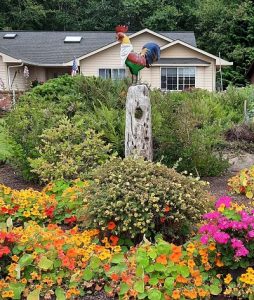
unmasked chicken
Last summer one state park in my area was vacant. Last week, I went to the same state park and cried tears of joy on the beach as I watched the returning vacationers. There were children flying kites, seniors meditating on the waves and the hardy people were paddle boarding and sailing. No wonder a friend of mine said, “I don’t ever want this summer to end”.
But end it will. Unless you are lucky enough to pour yourself a glass of dandelion wine. “Hold summer in your hand, pour summer in a glass, a tiny glass of course, the smallest tingling sip, for children; change the season in your veins by raising glass to lip and tilting summer in.” (Dandelion Wine by Ray Bradbury).
What exactly does Bradbury mean by raising a glass to drink the summer in? One word comes to mind. Savoring. Bradbury invites us through this metaphor of dandelion wine to savor summer year-round. As for this fleeting month of August? More than ever, we are being invited to savor this traditional last month of summer, precisely because we do not know what is coming. (This week a mask mandate for our local grocery store workers has again been instituted.)
Might we then consider savoring as a spiritual practice? I have an audio mindfulness meditation offered by Jon Kabat-Zinn in which he invites meditators to focus for eighteen minutes and fourteen seconds on one raisin. Savoring, in this case, calls for the capacity to develop intense curiosity, looking, holding, touching, sniffing, tasting this one tiny fruit. For me, this particular meditation also required patience.
“Is he ever going to let me swallow it?” I asked. I learned that savoring calls for both slowness and spaciousness. It is in fact a mindfulness practice. We cannot savor without being fully present.
In her book, The Wisdom of the Body, Christine Valters Paintner explains that “the root of the word savor comes from the Latin words saporem which means “to taste” and is also the root of sapient which is the word for wisdom. Her conclusion is that when we give ourselves over to savoring; wisdom emerges.
What possible wisdom can be gleaned by savoring the taste of the last peaches of summer? Or smelling the grass and soil in the early morning when the dew is visibly present? Or listening to the songs and cacophony of birds, or gazing at the night sky dotted with stars, planets, and comets?
“Paying attention to the world by using all of our senses can in fact bring a complete transfiguration of our life,” writes John O’Donohue. “Your senses are the guides to take you deep into the inner world of your heart. By being attuned to the wisdom of your senses, you will never become an exile in your own life, an outsider lost in an external spiritual place that your will and intellect have constructed. Your senses link you intimately to the divine within you and around you.” –Anam Cara by John O’Donohue.
Your senses link you intimately to the divine within you and around you. I could say more, but savoring also involves discernment by asking how do we want to spend our time and energy? As I gaze out my window this day, I have to ask myself, how many more words do I need to write to make my point here? Do I really want to spend the rest of the day indoors? Or, do I want to yield to savoring the goodness of creation?
Surrendering to what is a fine summer day, I’m throwing in the towel, that is, into my car and heading to the beach. There is pleasure to be had in this summer day; both moments of Sabbath and a gateway into Presence.
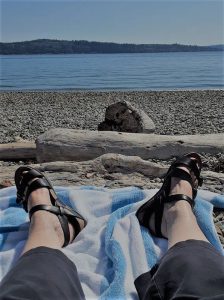
Savoring beach
Questions for reflection:
- What do you savor in life and why?
- Do you practice or have you considered the role that savoring and/or the senses play in your spiritual journey?
Bio for Elaine
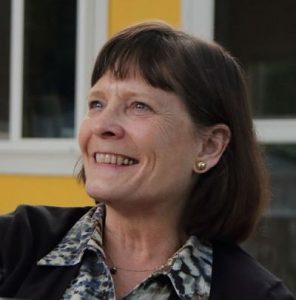
The Rev. Elaine H. Breckenridge is a recently retired Episcopal priest residing on Camano Island, Washington. She is enjoying nature, caring for two grandsons, taking online classes, and experimenting with photography.
It’s not too late to learn more about summer practices and connecting with God through summer symbols and experiences! Check out Christine Sine and Lilly Lewin’s Making Time for a Sacred Summer Online Retreat. This course allows you 180 days of access for only $24.99!
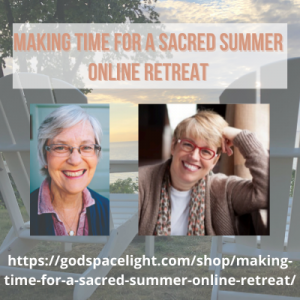
by Lilly Lewin,
One of my Spiritual practices is to let Jesus speak to me through everyday items. I look at something and let Jesus inspire me and then use the item as a springboard for prayer.
Quilts
Pieces of fabric sewn with love
Needles and thread
Mended party dresses
New calicos
leftovers
and hand me downs
All together
Colors woven
Patterns set
Stitches made in community
Or alone
In prayer
Stitches sewn in hope
And promise
Quilts
Sewn in love
What are the quilts in your life?
How do they reflect your life story… baby quilts, old quilts, new quilts, etc.
I had one in greens and yellows, made from faded old cotton set out in the pattern of a fan. It was from my great-grandmother. I used it for years for picnics, as a table cloth, and on my bed. It was a symbol of love and hospitality.
The quilt in the photo above was made by my good friend and college roommate, Lynn Stock… another creation of love that was an unexpected gift of abundance, grace, and beauty.
I have a tapestry quilt with a beautiful wild goose quilted on it representing the Holy Spirit.
I have a crazy quilt that has never been finished… it’s just the top of the quilt but it is ancient, even older than my great-grandmother’s. This quilt is pieced with velvet, silks, and embroidered animals. I’ve often wondered about the life of the woman or women who made this one. They took the time to make the small pieces of fabric scraps come together into a beautiful piece of art.
What do you see in a quilt?
How can your relationship with Jesus be compared to a patchwork quilt?
How is Jesus piecing you together?
Consider all the pieces of your life
All the pieces of these past 18 months…
What is Jesus sewing together?
What is Jesus mending?
What still needs work?
Who else helps you stay connected?
Take time to be thankful for them.
What squares need rearranging?
Are you feeling quilted into a whole or still just in blocks or pieces?
How do you need a quilt of love to surround you right now?
Tell Jesus what you need.
Read Psalm 139 and let the Holy Spirit speak to you!
Psalm 139 (New Living Translation)
1O LORD, you have examined my heart
and know everything about me.
2You know when I sit down or stand up.
You know my thoughts even when I’m far away.
3You see me when I travel
and when I rest at home.
You know everything I do.
4You know what I am going to say
even before I say it, LORD.
5You go before me and follow me.
You place your hand of blessing on my head.
6Such knowledge is too wonderful for me,
too great for me to understand!7I can never escape from your Spirit!
I can never get away from your presence!
8If I go up to heaven, you are there;
if I go down to the grave,a you are there.
9If I ride the wings of the morning,
if I dwell by the farthest oceans,
10even there your hand will guide me,
and your strength will support me.
11I could ask the darkness to hide me
and the light around me to become night—
12but even in darkness I cannot hide from you.
To you the night shines as bright as day.
Darkness and light are the same to you.13You made all the delicate, inner parts of my body
and knit me together in my mother’s womb.
14Thank you for making me so wonderfully complex!
Your workmanship is marvelous—how well I know it.
15You watched me as I was being formed in utter seclusion,
as I was woven together in the dark of the womb.
16You saw me before I was born.
Every day of my life was recorded in your book.
Every moment was laid out
before a single day had passed.17How precious are your thoughts about me,b O God.
They cannot be numbered!
18I can’t even count them;
they outnumber the grains of sand!
And when I wake up,
you are still with me!19O God, if only you would destroy the wicked!
Get out of my life, you murderers!
20They blaspheme you;
your enemies misuse your name.
21O LORD, shouldn’t I hate those who hate you?
Shouldn’t I despise those who oppose you?
22Yes, I hate them with total hatred,
for your enemies are my enemies.23Search me, O God, and know my heart;
test me and know my anxious thoughts.
24Point out anything in me that offends you,
and lead me along the path of everlasting life.
What does your quilt look like?
Can you accept it as a quilt of love?
Embark on this healing journey with Christine Sine, Lilly Lewin, and Bethany Dearborn Hiser with the Time to Heal Online Course. Each session is lead by one of our instructors and allows you 180 days of access for only $39.99. The goal of this course is to provide time, space, and tools to work toward healing.
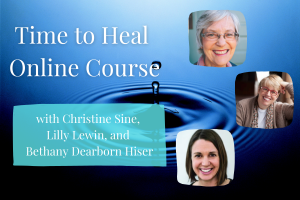
posts and photos by Jenneth Graser,
We live near one of the most beautiful gardens in the world, Kirstenbosch National Botanical Garden in Cape Town, South Africa. Hugged by majestic mountains which seem to hold the garden from beneath with loving support, heralding the garden as if to announce to everyone the display of beautiful indigenous forest, fynbos, rivers, springs, and trees, views sweeping across the city toward far, sometimes snow-tipped mountains and the distant sea.
We have regularly kept a membership there, walking together over the years and sharing with our girls what I experienced as a child, and grew up visiting and exploring when my parents took us there for walks and picnics. We enjoy walking up the steep pathways which wind up to the uppermost reaches of the garden where there are magnificent proteas, ericas, birds, and all sorts of scents, sights, and sounds.
There is a bridge where we can overlook the winter river pouring into a shallow catchment area and then rushing off under the bridge over rocks and boulders tumbling down the mountainside. We see tadpoles and bubbles popping, froth collecting amongst rocks in the brackish water.
We like to find a bench in the heights of the garden to stop and rest for a while. This is where we do centering and listening prayer together. We use the Contemplative Outreach app (Centering Prayer Mobile App – Contemplative Outreach, Ltd.), choose a starting sound of the singing bowl, a finishing sound of wind chimes, a starting scripture, and a closing prayer. We set the timer for about 3 minutes of silence and choose a word to center around in God’s presence before asking, “Jesus, what would you like to share with me today?”
Then we sit in the stillness and birdsong of the garden with the sound of rushing waters in the background and listen with our eyes closed. Afterward, we record our sharing of what we experienced during our quiet sit. Our girls are currently 9, 10, and 13 years old and we began centering with them about 2 years ago. It was at first an education in becoming still without fidgeting and then listening for what to them felt like a long period of time. But it became easier and easier for them with some practice and adjustments here and there, to sit and be still for a short period of time, and then they always love the feedback time at the end where we all feel so encouraged by the things God shares with us.
When they saw for themselves that Jesus is sharing pictures with them, we encouraged them to also ask for the interpretation. What is God sharing through the picture they see? What do they think it means? Now they most often see a picture and then receive a sentence or two to go with it which explains more about what they saw. It takes in all about 10 minutes, but we come away refreshed and uplifted every time.
It is such a precious time to share with our children, as we have seen them grow in how they can approach God with freedom and confidence and hear from Him, with loving words to support, offer wisdom and lift them up with just what they need to hear at the given time. This brings us together as a family in a shared time of listening and encountering God. Our children teach us so much! How wonderful that Jesus said in Matthew 19:14 (NIV), “Let the little children come to me, and do not hinder them, for the kingdom of heaven belongs to such as these.”
Especially as we are living through one of the most unprecedented times we have ever known as a globe, no matter how we may feel when we enter the gates of the garden, we always feel peace as a gift from our walks together. It is good to get outdoors, away from distractions and into God’s presence in creation which lifts us up, heals us, speaks to us through everything we see, and renews us with praise.
Then we wind back down the mountain wherever our hearts take us. Sometimes we have a treasure hunt – the first person to find a seed, leaf, stone, and feather! We go to Colonel Bird’s bath which is shaped like a bird fed by a pure water spring where we collect drinking water which tastes so good, perfectly PH balanced from the heart of the mountain. This spring feeds into a channel that runs towards a small overhang of a gentle waterfall, and then trickles between smooth stepping stones, a home to small fish and tadpoles. We take time to listen to the bell-clicks of singing frogs, the sunbird’s whistling tunes, and I love to take photos of the flowers we see. We also walk through the meandering touch and smell fragrance garden, squeezing leaves between our fingers and taking in the mesmerising scents as we go along. These sensory garden walks fill us up with an incredible sense of wellbeing as we go home, taking our encounters with us in heart and spirit.
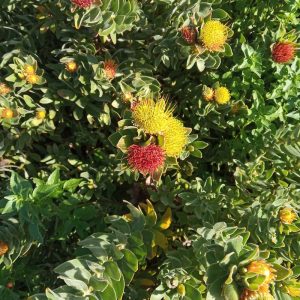
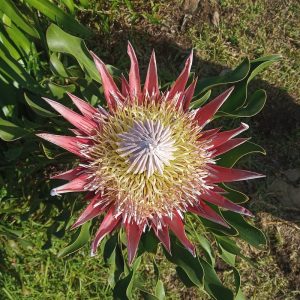
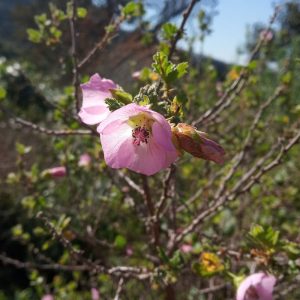
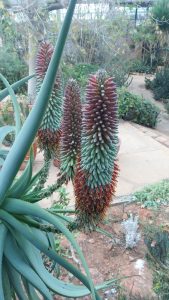
Here are some things the girls have to share about centering, when I asked them each to come one at a time and tell me, what do you think about centering prayer?
“I really like centering prayer. I always feel good when I’ve done centering prayer.”
“I like centering prayer, because it’s peaceful and it makes me feel good. I like it because then you get in touch with the Lord and I also like it because I like hearing all the noises of the birds and everything and I also like sharing.”
“Wonderful, it’s calming. It makes me feel nice when I’m flying in all of my centerings. It’s a wonderful thing to do. God speaks to us through it. It’s like going through a new life.”
Want to experience more of the awe and wonder that God offers us? Check out the Gift of Wonder Online Retreat by Christine Sine. This retreat allows for 180 days of access for only $39.99 so you can move through the sessions at your own pace.
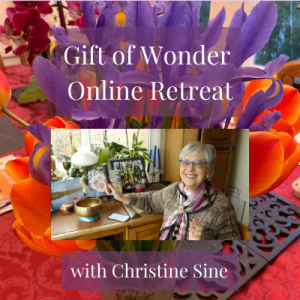
post and photos by Sue Duby,
CELEBRATION cake (or for me, my Mother’s famous rhubarb pie!), cards, family, friends… joy at any age!
Little ones know the art of celebrating birthdays. We’ve learned from the best of them… our grandsons.
For #3, Dawson decided he wanted a “yellow birthday”. Though he couldn’t yet master that “y”, we headed to the nearest Goodwill to hunt down the perfect “lellow” shirts to celebrate his life. Giggles, piñata bashing, Auntie Erin’s famous cake pops, and gifts. For #5, he expanded the color choices and announced, “I want a dinosaur rainbow party!”. Who knew those prehistoric creatures appreciated God’s paintings in the sky!
As the years pass, birthday moments change. For #14, Jack asked to spend the night (graduating from a mat on the floor to the guestroom bed!). With Papa’s 6 am wake-up, they headed out to hunt for misfired golf balls on the neighborhood course. Exploding with rapid-fire sentences two hours later over breakfast, Jack recounted every detail. “Nana, we got 82 balls! Such a great birthday!”. Did I mention we don’t golf? Adventures count for gold.
In my early, young Mama days, birthdays for Krista and Peter brought a good measure of anxiety and stress (ok, maybe a lot!). Worrying about cost. Comparing with other Mom’s creative celebrations. Trying to avoid chaos. So wanting to make it unique and special. More focus on “my plan” than the one being honored.
Along the way, I watched my sweet friend, Candy. Family birthdays always meant a whole day of honor in her house… often simple surprises along the way. Food, fun, and activities – all in the “favorites” category of the one celebrated. In the midst of it all, she modeled “marking the day”… remembering the gift of the life, acknowledging God’s handiwork in creating the “guest of honor”, praying them into the next year. Joy-filled and deep Spirit-led deposits at the same time.
I’ve grown to love “marking the day” for my own Duby tribe. Still a hint of stress in the scheming for a plan, but deep joy in remembering God’s handiwork and delight in His creation.
As the calendar days click by and I approach a new decade (numbers don’t matter, right?), I’m challenged to mark my day by embracing the truths I hold for everyone else. Not squirming or avoiding the day. Working to switch from discomfort in being a focus of attention to gratefulness for the amazing years lived and adventures yet to unfold. Realizing my struggle in answering the dreaded, “What do you want?” question means less about my own indecision and more about a deep measure of contentment He’s given me.
Know and fully recognize with gratitude that the Lord Himself is God;
It is He who has made us, [a]not we ourselves [and we are His].We are His people and the sheep of His pasture. Psalm 100:3 AMP
I will give thanks and praise to You, for I am fearfully and wonderfully made;
Wonderful are Your works, and my soul knows it very well. Psalm 139:14 AMP
Our anchor of truth. A foundation that allows us to move into each new year. We’re His… fully, completely. Created with purpose and affection. Belonging. And in the quiet, I do “know it very well”.
For we are His workmanship [His own master work, a work of art], created in Christ Jesus [reborn from above—spiritually transformed, renewed, ready to be used] for good works, which God prepared [for us] beforehand [taking paths which He set], so that we would walk in them [living the good life which He prearranged and made ready for us]. Ephesians 2:10 AMP
For each new year or decade that’s yet to unfold, He’s prepared a way before us… with the strength, understanding, and wisdom we need to walk forward along His path. He’s ready and waiting to be our guide… now and always.
I’m feeling the bubbling up of anticipation in marking my soon-to-happen day. Entering in with both feet, looking for His hand, remembering His goodness, and embracing the next decade as a sweet gift… knowing His embrace will wrap me close each step along the way.
Surely your goodness and love will follow me all the days of my life, and I will dwell in the house of the Lord forever. Psalm 23:6 NIV
When you get ready to blow out your next set of birthday candles, may you know He is celebrating His creation . . . you!
P.S. The new decade starts with “7” ☺
The Spirituality of Gardening Online Course is available for 180 days of access for only $39.99. This interactive course includes video sessions with Christine Sine as well as 8 other guest gardeners. Visit our store page for more information.
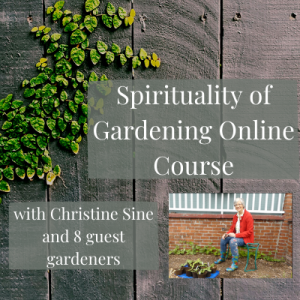
post and photo by Diane Woodrow, Conwy Beach, July 2021.
The Godspace theme of Gearing Up For A New Season got me thinking about what that means to me.
At the moment, none of us really knows what this New Season will look like. With global warming, our seasons are all over the place. Over the last month here in North Wales, we have gone from 17C to 32C and now it is 13C. The only type of weather we haven’t had over July is snow, but we’ve had blistering heat, pouring rain, hail, funnel winds, and gentle sunshine too.
At one time when schools restarted, the pupils would have had time at the end of the last term to go check out their new classes or new schools and have met their teachers and even started making friends, and be prepared for their new season. But due to COVID, many were isolated before the end of term or discouraged to be anywhere other than in their regular classrooms.
For me personally, I can feel a new season starting. Since I published The Little Yellow Boat, I’m being called a professional writer, which has led to me being paid to become part of a long-term youth project. I am also setting aside regular times to write, both in my beautiful study or out on walks. Yesterday I went to the place in the picture and wrote.
But still, the question is – how do I prepare for this new season? How do I gear myself up for it? What will it look like? Or even, should I be planning? I write more about this in my blog post, “Intentionality Written in Pencil”, which will also appear on Godspace on August 17th.
So whereas once we would almost know what this new season would look like with COVID, with the extremes of weather, with new projects, with different working conditions, we cannot predict how things will be. Tom Sine does a good attempt to explore the themes of these changing times on his blog – NewChangemakers.
As the saying goes, “change is always with us”, but it feels like as things start to open up, even with cases of COVID continuing to increase, there is nothing solid to hang on to. I am grateful for my faith but even with that, although the Bible says the Lord is the same today, tomorrow, and yesterday, my relationship with God and how I see my faith has changed.
So what are the concrete things I can hold on to as I gear up for a new season? And what can I share with others?
For me, the big one would be that God is God and is always there no matter what goes on, no matter how much I change, no matter what goes on in the world. And that God wants the best for me and so, if we work together I can grow more flexible, more trusting in God, deeper in my beliefs of knowing God is watching my back. You know I was going to write stronger but I felt like flexible was the word. We talk a lot about growing stronger as though that is a good thing but I actually think that if I can get more and more flexible then I will be able to roll with the seasons, be blown by the winds of change but not fall. I think to be more flexible, I need to have roots that go deep and I think for me as I gear up to this new season, whatever it is going to look like, I want to send my roots deep into my Saviour, Maker of the Universe, and just trust that what will come my way, however it comes, I will remain with my Saviour.
Join the Godspace Light Community Group on Facebook! This is a place to discuss a whole-life faith that embraces spirituality especially contemplative, Celtic, & creative spiritual practices, environmental & economic sustainability, social & environmental justice, and gardening & creation care.
As an Amazon Associate, I receive a small amount for purchases made through appropriate links.
Thank you for supporting Godspace in this way.
When referencing or quoting Godspace Light, please be sure to include the Author (Christine Sine unless otherwise noted), the Title of the article or resource, the Source link where appropriate, and ©Godspacelight.com. Thank you!

